Tattoo machines - history and backgrounds
The heart of every tattoo session is undoubtedly the tattoo machine. There is now a wide range of different machines that enable every tattoo artist to create their own individual style.
But how exactly was the machine actually invented?
Originally, the tattoo machine was developed by Thomas A. Eddison in 1877 for engraving objects. However, Samuel O'Reilly soon realised that after a few modifications, this engraving machine could also be used to put ink under the skin.
One of the first tattoo machines was later used by the tattoo artist Christian Warlich in Germany. Christian is considered the "forefather of German tattoo artists".
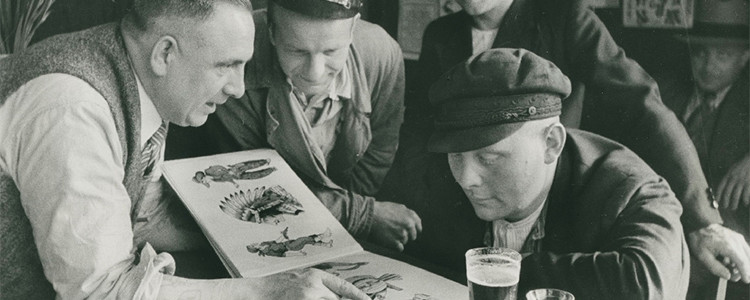
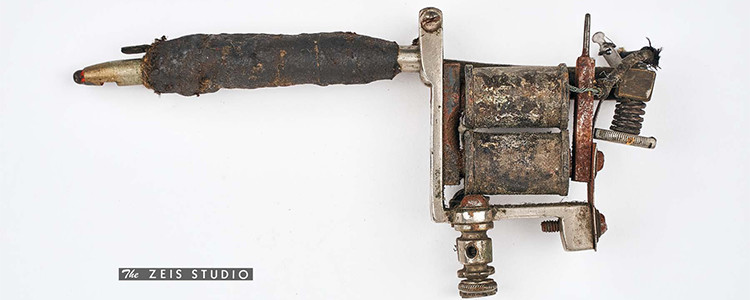
Charlie Wagner
In 1904, Charlie Wagner, who claimed to have been an apprentice of Samuel O'Reilly, patented a tattoo machine with two, vertically aligned coils.
In a letter to his competitors he wrote: "Someday you will all buy only my machines, as I hold the only US patent for tattoo machines (...) from the US Patent Office." This letter was pompously signed "Prof. Chas. Wagner, 208 Bowery, New York City".
Wagner is considered a controversial, but nevertheless important pioneer of the modern tattoo industry.
In a letter to his competitors he wrote: "Someday you will all buy only my machines, as I hold the only US patent for tattoo machines (...) from the US Patent Office." This letter was pompously signed "Prof. Chas. Wagner, 208 Bowery, New York City".
Wagner is considered a controversial, but nevertheless important pioneer of the modern tattoo industry.
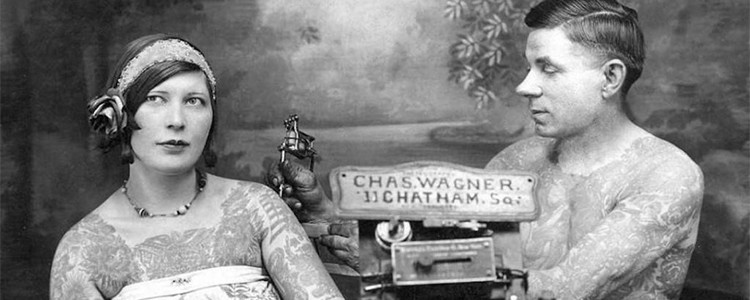
Tattoo machines today
A lot has changed since the first tattoo machine was invented. Today, there is a wide range of different tattoo machines, which are designed and produced as individual pieces by artists in the scene or in large numbers by medium-sized manufacturers.
A distinction is made between coil machines and rotary machines with built-in electric motors.
Rotary machines are available in various designs, but are mainly suitable for tattooing lines, shading and filling in areas with colour. The drive of the machine works on the principle of a crankshaft. The tattoo needle is driven by the built-in electric motor via a pivot point.
Coil machines are rather adjusted and manufactured for tattooing lines, shadows and also for colour filling. This is specified by different metal frames, with different distances between the individual screws and other components. Spring plates of different thicknesses were used to make the machine more sensitive to different applications.
A distinction is made between coil machines and rotary machines with built-in electric motors.
Rotary machines are available in various designs, but are mainly suitable for tattooing lines, shading and filling in areas with colour. The drive of the machine works on the principle of a crankshaft. The tattoo needle is driven by the built-in electric motor via a pivot point.
Coil machines are rather adjusted and manufactured for tattooing lines, shadows and also for colour filling. This is specified by different metal frames, with different distances between the individual screws and other components. Spring plates of different thicknesses were used to make the machine more sensitive to different applications.
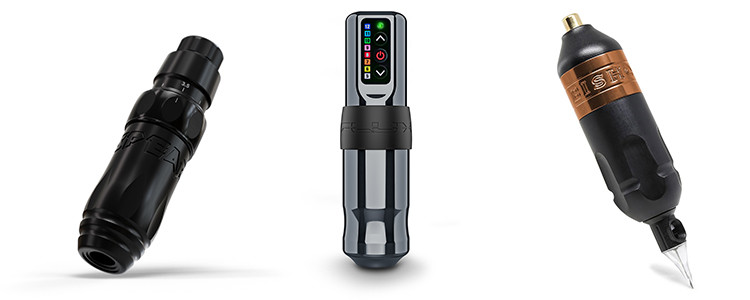
Cheyenne Professional Tattoo Supplies
Cheyenne machines are high-quality and robust machines with easy-to-clean materials. Cheyenne is in constant exchange with tattoo artists of different styles to further improve the machines.
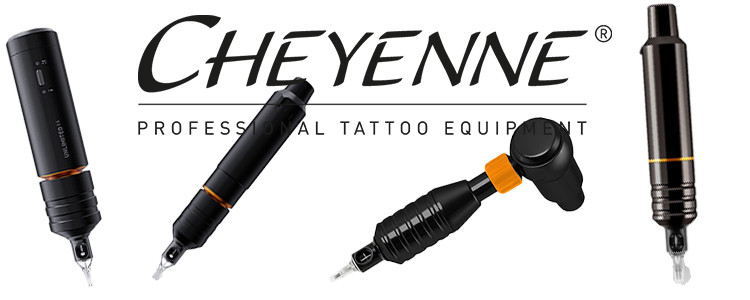
Stigma Rotary
Stigma was founded in 2005 by passionate tattoo artists from Germany with over 20 years of experience in the tattoo industry. Stigma has also specialised in the production and development of rotary machines and has amazed the industry with a system that adjusts the compliance of rotary machines for soft and hard stitching in seconds.
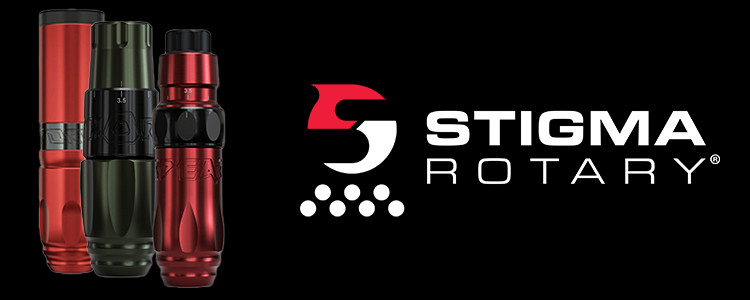
Swiss Rotary
Lining, shading and colouring are all possible with the Swiss Rotary machine. The tattoo machine works with a voltage of between five and ten volts. A powerful Swiss motor has been installed. The machines are very light, quiet and produce only a low level of vibration.
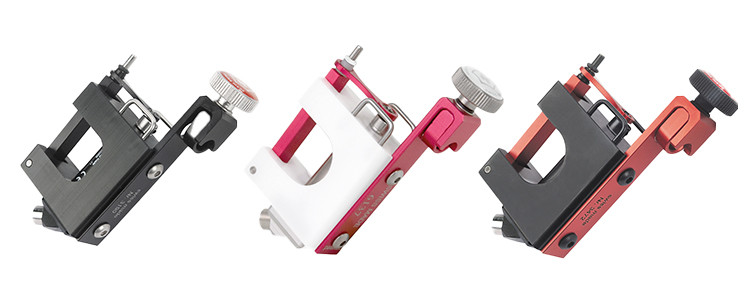
AVA Premium
The machines from AVA Premium convince with their noble design and high quality. Tattoo artists all over the world enjoy the machines.
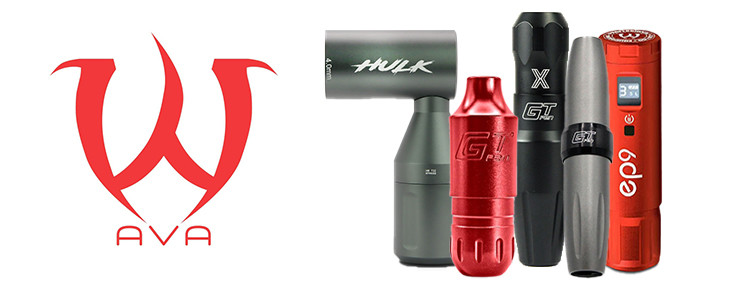
Bavarian Custom Irons
At Bavarian Custom Irons, only the best materials are used and the machines are painstakingly and individually handcrafted. Each tattoo machine is unique and is delivered signed.
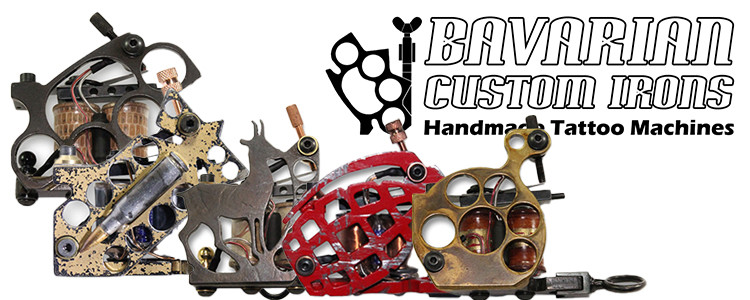
Ravage
Ravage machines are particularly powerful, yet light and compact. The housings are made of aircraft aluminium and are powder-coated.
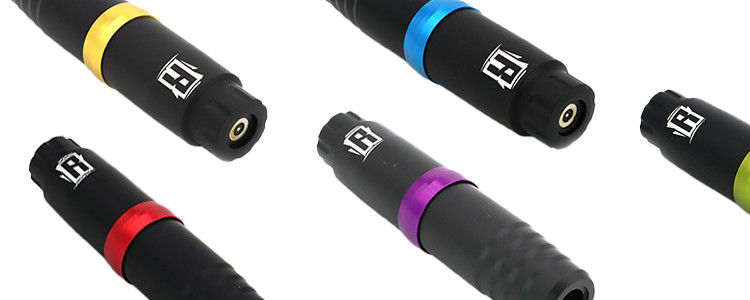
Christian Warlich
Christian Warlich is still considered the "king and gentleman among tattoo artists", who still influences generations with his manner and expertise. He was the first professional tattoo artist in Germany as well as the first to work with an electric tattoo machine in Germany.
He took his first important steps in his long tattooing career when he went to sea for several years. He owed his name "gentleman among tattoo artists" to his way of always dressing elegantly with suit and bow tie. His good contacts, especially in America, gave him a monopoly on the purchase and sale of electric tattoo machines. In his four-decade career as a tattoo artist, he tattooed more than 50,000 customers. Among them were many celebrities, such as Prince Axel and Vigo from the Danish royal family.
He took his first important steps in his long tattooing career when he went to sea for several years. He owed his name "gentleman among tattoo artists" to his way of always dressing elegantly with suit and bow tie. His good contacts, especially in America, gave him a monopoly on the purchase and sale of electric tattoo machines. In his four-decade career as a tattoo artist, he tattooed more than 50,000 customers. Among them were many celebrities, such as Prince Axel and Vigo from the Danish royal family.
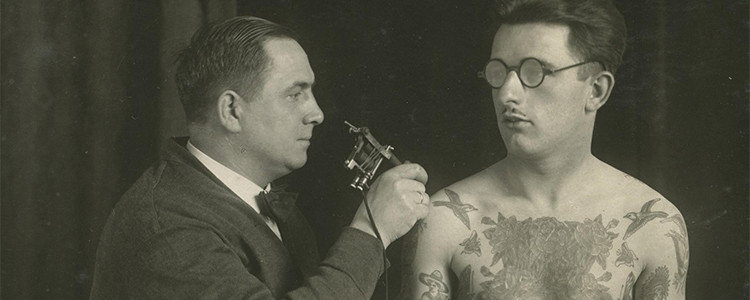
The correct cleaning of the machine
Due to the work on the client, who receives an open wound through the tattooing process, hygiene is an enormously important part of the tattooist's work. As the machine is at the centre of a session and is the main working tool, its hygiene should not be underestimated!
But there are many things you can do wrong when cleaning a machine. We show you what to look out for.
Basically, you have to take special care when cleaning. After all, the machine contains sensitive electronics and thin, easily rusty parts. Cleaning with disinfectant can damage these.
Coil machines should be treated with disinfectants after use and then oiled.
For Rotary machines, the cleaning and care tips included with the product usually apply. Appropriate disposable covers protect your machines additionally and make the cleaning process much easier.
But there are many things you can do wrong when cleaning a machine. We show you what to look out for.
Basically, you have to take special care when cleaning. After all, the machine contains sensitive electronics and thin, easily rusty parts. Cleaning with disinfectant can damage these.
Coil machines should be treated with disinfectants after use and then oiled.
For Rotary machines, the cleaning and care tips included with the product usually apply. Appropriate disposable covers protect your machines additionally and make the cleaning process much easier.
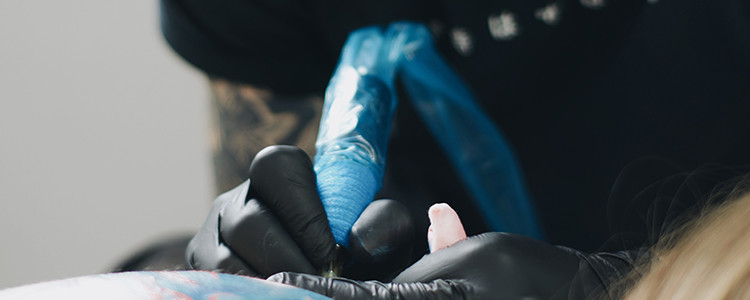
Inkjecta Rotary
Inkjecta is a tattoo machine manufacturer from Australia. They mainly produce rotary machines that can be combined with all needle modules. Due to the high reliability of the machine as well as the extreme smoothness of the motor, the machines are very popular worldwide.
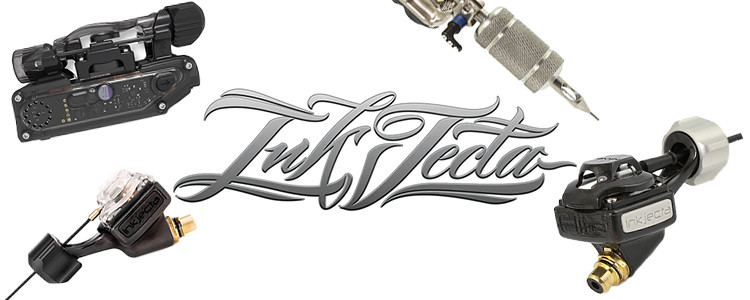
Equaliser Kwadron
Kwadron is one of the leading manufacturers of tattoo needles, colours, tattoo machines and all accessories from Poland. The company has many years of experience in the field of modern production and storage technology.
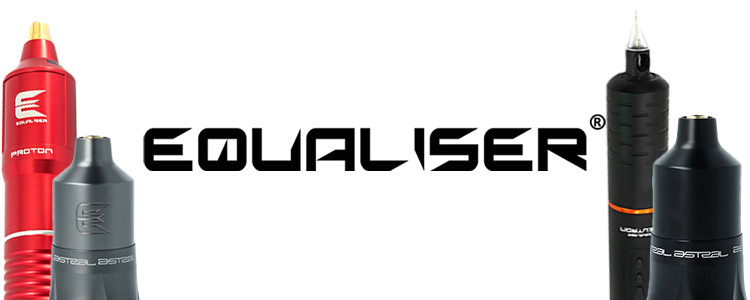
FK Irons
FK Irons (Fallen Kings Irons) was founded in 2007 and is today one of the leading manufacturers of state-of-the-art tattoo machines. The machines are produced and manufactured in the USA. Various artists regularly test the machines and help to constantly improve them.
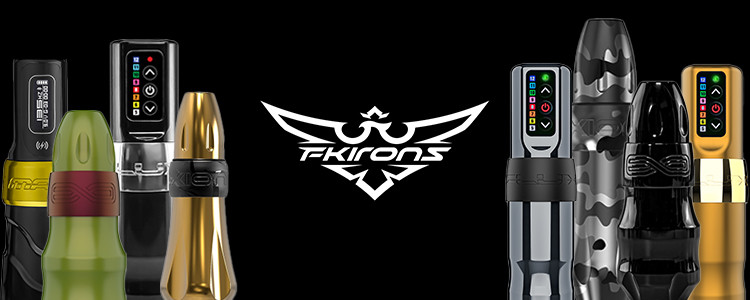
EGO
The British manufacturer EGO produces tattoo accessories that focus on the health of tattoo artists. The machines are ergonomically designed and easy on the joints.
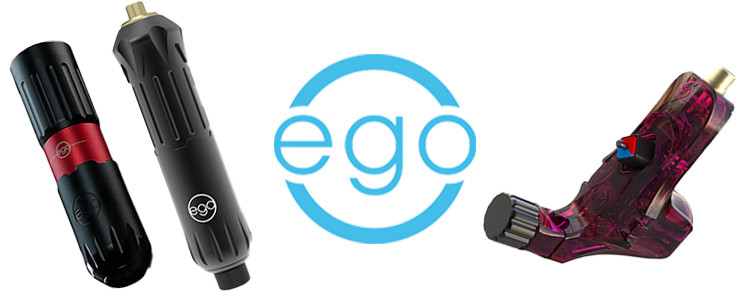
Bishop Rotary
Bishop was founded in 2008 by Franco Vescovi. The aim was to offer tattoo equipment that every tattoo artist can afford.
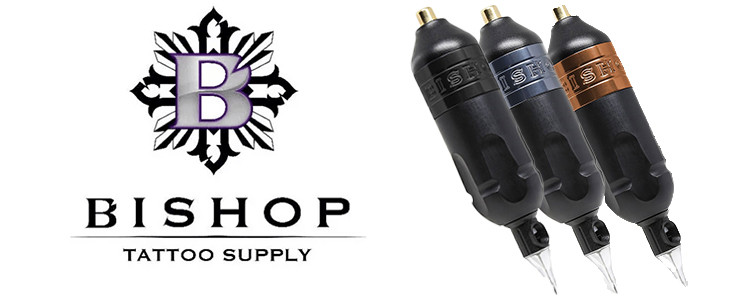
Pirat Tattoo Machines
Unique and high-precision, handmade tattoo machines from the heart of Europe. The Pirat Tattoo Machines are characterised by their elegant design and low weight.
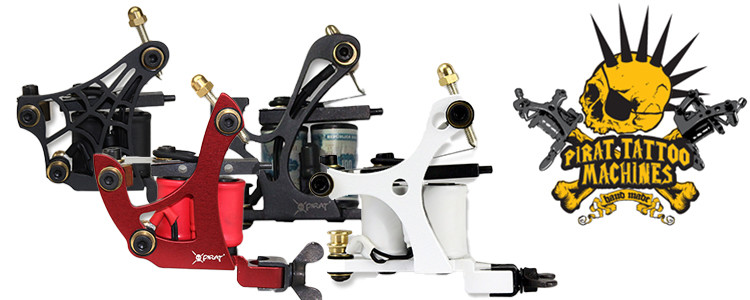
You are sure to find the right machine and accessories for you in our range. If you are unsure, you can always contact our customer service.
We also always present the latest models in our blog posts! So feel free to take a look there as well.
We also always present the latest models in our blog posts! So feel free to take a look there as well.

 German
German Dutch
Dutch